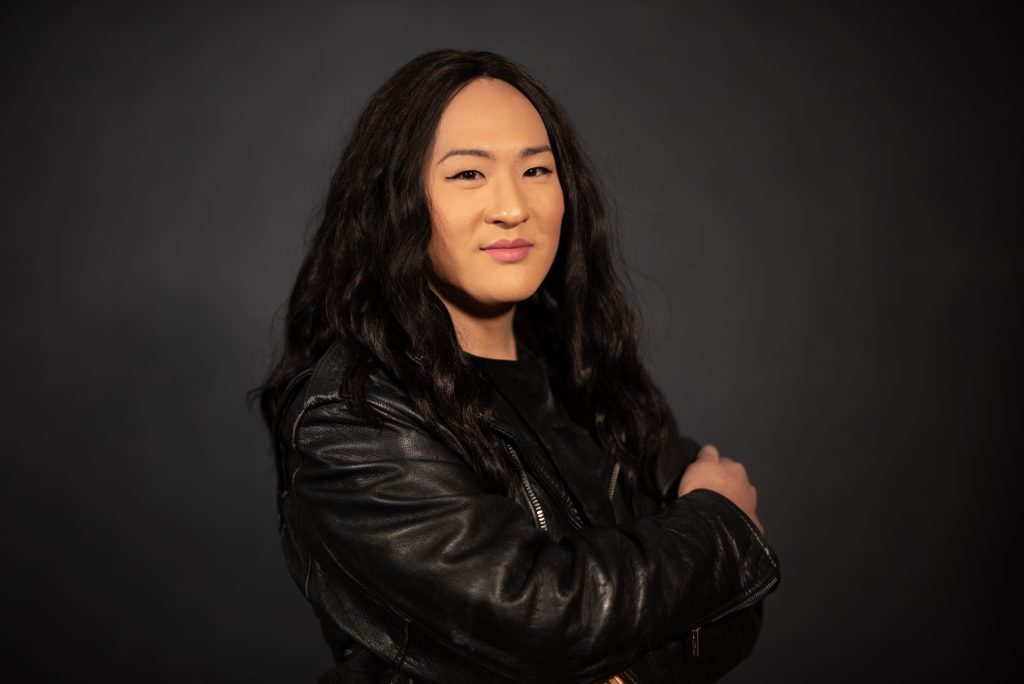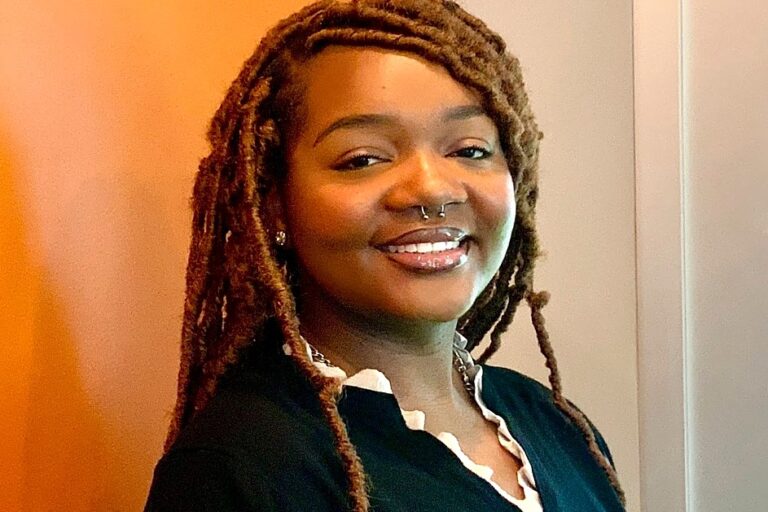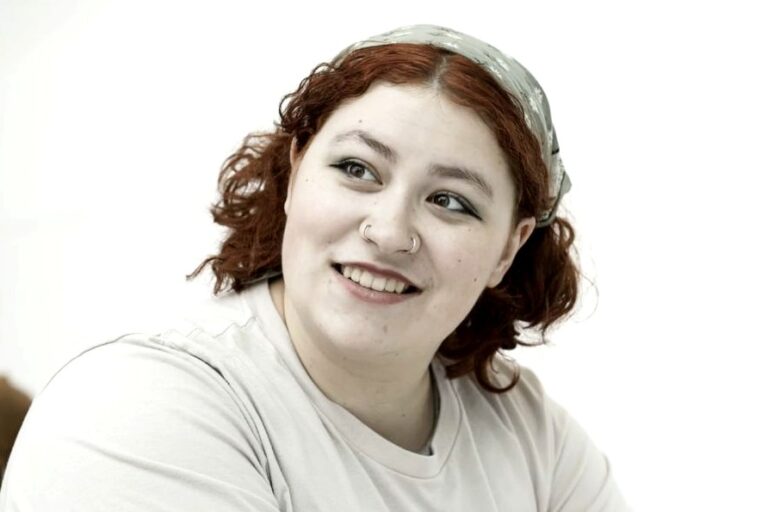This year’s College of Arts & Letter’s Artist-in-Residence of Critical Race Studies is Young Joon Kwak, a multidisciplinary artist who works primarily through sculpture, performance, video, and collaboration.
The Critical Race Studies Artist-in-Residence program, offered by the Department of Art, Art History, and Design (AAHD), will give Kwak the opportunity to produce a substantial public project that engages in critical approaches to diversity and inclusion through creative practice. Kwak also will teach courses in the Department of Art, Art History, and Design and participate in outreach to the community throughout the year.
“Young Joon is an extraordinarily accomplished sculptor and performance artist, normally based in Los Angeles, whose work sits at the intersection of critical engagements with race, sexuality, and gender identity,” said Karin Zitzewitz, Interim Director of the Department of Art, Art History, and Design. “They were immediately attracted to the challenge of teaching studio art remotely and have been thinking carefully about how their interactions with students and exhibition work can accommodate the circumstances of the pandemic.”

As a multidisciplinary artist, Kwak’s work reimages the form, functionality, and materiality of objects. As the 2020-2021 Critical Race Studies Artist-in-Residence, Kwak will develop a project that uses the symbol of the Spartan to explore ideas around monuments and symbols of identity and collectivity.
“I am looking forward to the process of connecting and collaborating with students, faculty, and other members of various communities in the university to show how art allows us to respond to the issues that matter deeply to our everyday lives, and can connect us to each other during this time of social-distancing,” Kwak said.
The Critical Race Studies Residency program was established in 2017 thanks to a $750,000 gift from the Michigan State University Federal Credit Union (MSUFCU). The MSUFCU gift is being spread out over a five-year period (2018-2022) in annual installments of $150,000.
I am looking forward to the process of connecting and collaborating with students, faculty, and other members of various communities in the university to show how art allows us to respond to the issues that matter deeply to our everyday lives, and can connect us to each other during this time of social-distancing.
“MSUFCU is pleased to be able to provide the opportunity for the College of Arts & Letters to bring diverse voices and experiences to the MSU community,” said April Clobes, MSUFCU’s President/CEO.
As a part of the residency, Kwak is teaching a course online this fall covering objecthood and the performance of identity. Although the course is not being held in person, Kwak embraces the adversity.
“As a teacher and artist, I want to continually adapt to the shifting conditions of education and culture,” Kwak said. “With the present conditions due to the global pandemic, our nation’s divided politics, social unrest, increasing threats against the lives of Black and trans people, and being in a swing state during a presidential election year, it’s a crucial time for teaching and making art to imagine a better future.”
Kwak also will give two lectures as an Artist-in-Residence — one on Thursday, September 17, through AAHD, which will be virtual, and one in the spring with University Interdisciplinary Colloquium, which is yet to be determined how that will be held. For the September 17 lecture, check the Department of Art, Art History, and Design website for details.

Kwak is scheduled to have an exhibition at a campus gallery in the spring depending on the circumstances of the pandemic.
“My work will involve a lot of dialogue, outreach, and adapting to institutional changes due to the pandemic,” Kwak said. “It’s hard to say exactly what my work will look like given the present circumstances, but the process of discovering what form my work will take at this time is part of what excites me as an artist.”
Kwak is this year’s recipient of the Korea Arts Foundation of America’s Award for the Visual Arts and has presented solo exhibitions and performances around the world, including at Cerritos College Art Gallery; Wattis Institute; Walter Phillips Gallery; Banff Centre; the Art Museum of the National University of Colombia, Bogotá; Hammer Museum; REDCAT; and the Eli and Edythe Broad Art Museum. Kwak also has performed in group exhibitions that have been held at the Serendipity Arts Festival, Goa, India; Institute of Contemporary Art, Los Angeles; and Le Pavillon Vendôme Centre d’Art Contemporain, Clichy, France. Kwak is the recipient of the Rema Hort Mann Foundation’s Emerging Artist Grant and the Art Matters Grant.
My work will involve a lot of dialogue, outreach, and adapting to institutional changes due to the pandemic. It’s hard to say exactly what my work will look like given the present circumstances, but the process of discovering what form my work will take at this time is part of what excites me as an artist.
Kwak is the founder of Mutant Salon, a beauty salon and roving platform for collaborative performance and community building within the queer, trans, POC, womxn, and mutant communities. As part of their residency, Kwak organized a virtual visiting artist lecture series in the fall called Mutant Salon Talks that will be open to the public and feature emerging and established artists from their community including Gordon Hall, rafa esparza, EJ Hill, and Julie Tolentino. Mutant Salon Talks is part of Kwak’s effort to provide a platform for diverse voices that could speak to and inspire diverse groups of students at MSU who come from different backgrounds and work in a variety of disciplines.
Kwak has taught at the University of California, San Diego, and California Institute of the Arts, and served as a Mentor at the School of the Art Institute of Chicago’s Low-Residency M.F.A. Program. Kwak has an M.F.A. from the University of Southern California in 2014, M.A. in Humanities from the University of Chicago in 2010, and B.F.A. from the School of the Art Institute of Chicago in 2007.


